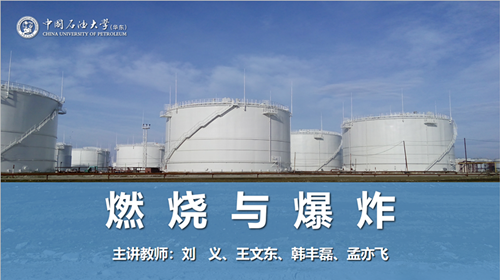
当前课程知识点:Research Methods in Tourism Studies > Week 5 Emerging Issues in Tourism and Hospitality Research > 5.4 Using Delphi Method in Research Design > 5.4.5 Preliminary findings
返回《Research Methods in Tourism Studies》慕课在线视频课程列表
返回《Research Methods in Tourism Studies》慕课在线视频列表
我之前解释过我们在葡萄酒行业
实施德尔菲的方法
让我们看看
一些来自加拿大奥卡那根谷的专家的发现
这项研究是全球性的
不同的研究人员来自世界上不同的葡萄酒产区
但是这些发现来自于我的两个非常好的同事
Alan和Michael他们在加拿大的奥卡那根商学院
实施了这项研究工作
因此 正如我以前在之前解释的那样
专家小组被要求提出与政治 经济 环境 社会 文化和技术等不同因素
相关的未来问题
并按照重要性排序
两位研究人员听取了专家的意见
而通过定性的内容分析
他们实际上对两个不同问题的不同观点进行了聚类
你们可以看到它们中的大多数,与政治因素和它们的列表有关
与我们环境有关的因素也有关
在第二轮,专家们得到了不同类型问题的反馈
他们被要求就每个因素发生的可能性
以及这个因素对行业的重大影响给出自己的观点
对行业的重大影响给出自己的观点
协调人从专家那里得到了反馈和回应
然后他实际做的是
把所有不同的因素 一个接一个地聚成一个二维矩阵
一个是测量每个因素的重要性
另一个是测量可能性
我们使用平均值作为点的切点 并将其分割成一个低重要性或高重要性或可能发生系数
一个二维矩阵 它的维数有两个标准
我们最终得出了四个不同的组 不同的因素聚集在一起
这有多重要 你可以在这里看到结果
他们在这一组中的所有因素 意味着非常重要的因素
和这个因素发生的高可能性
当然 如果他们想要在未来获得成功和创新
必须关注行业的问题
现在 在第三轮 我们和我们的专家一起做的是
让他们把每个因素按重要性排序
这很重要 因为我们不希望仅仅依靠
专家在第二轮的课程上给出的
关于每个因素发生的可能性
如你所见 我们有一份他们在第一轮中确定的因素列表
我们把所有评分意见整理
按照1到5的刻度
来看这个因素发生的可能性有多大
然后我们还有第三轮
每个专家如何根据可能性
对因素进行排序
现在 正如你所看到的 写下的每个因素
并不总是与平均分数一致 而都与专家的百分比一致
所以他们在极端程度上或不那么地同意它有多重要
例如 在这种情况下
因素与电子商务的重要性和可能性有关
百分之七十一的专家 他们非常认可
电子商务相关的影响会发生作用
但在第三轮
但实际上是排名第四的因素未来发生了
我们在影响的重要性方面也做了同样的事情
再一次 这里你看到了第一轮中确定的因素列表
这一部分 你可以看到小组成员中
同意这个因素的非常重要的百分比
它在行业中有很好的影响
他们给的分数是4分 1分 2分 3分
在最后一轮中 你可以看到专家们是如何根据每一个问题的影响程度
对每个因素进行排序的
再一次 如果有人穿过整个列表,你会识别并看到
专家的意见是在第二轮并不总是
符合他们给的分数的排名
的影响因素的重要性
所以我希望这个例子能很好地说明人们如何应用
而不仅仅是德尔菲法的过程和理论
以及如何可视化和分析不同回合的结果
关于如何实现德尔菲法有很多文献
关于如何实现德尔菲法有很多文献
这里有一系列重要的研究
有些来自一般领域 有些来自旅游领域
我希望你会喜欢
-1.1 Research Question and Research Objectives
--1.1.1 Student interview before class
--1.1.2 The starting point: question
--1.1.3 What is a good research question?
--1.1.4 Ways to find a good research question
-1.2 Title Design
--Acticle: Leisure & Travel as Class Signifier: Distinction Practices of China's New Rich
--Discussion: Why do we research?
-1.3 Literature Retrieval Method and Literature Databases
--1.3.1 Common literature retrieval method
--1.3.2 Common literature search database
-1.4 Information Collection and Academic Journals in Tourism
--1.4.1 Academic journals in tourism research
--1.4.2 Literature collection methods and principles
-1.5 Literature Reading
--1.5.2 Overcoming obstacles in literature reading
--Week 1 quiz
--Discussion: What difficulties have you encountered in reading literature?
-2.1 Philosophical Bases of the Two Approaches
--2.1.1 Philosophical bases of the two approaches
-2.2 Differences between the Two Approaches
--2.2.1 Differences between the two approaches
--Article: Does tourist–host social contact reduce perceived cultural distance?
-2.3 Be Aware of Your Own Research Views
--2.3.1 Be aware of your own research views
--Discussion: How to choose research method?
-2.4 Research Example: Social Tourism
--2.4.1 What is social tourism?
--2.4.2 Established frameworks on social tourism
--2.4.3 Major research findings on social tourism
--2.4.4 Major findings of social tourism research
--2.4.5 Opportunities and challenges for social tourism
--Week 2 quiz
- 3.1 Key Procedures in Qualitative Approach
--3.1.1 Key procedures in qualitative approach
-3.2 Qualitative Data Collection and Analysis
--3.2.1 Key procedures and data collection methods in qualitative approach
--3.2.2 Data collection and analysis in qualitative approach
--3.2.3 Data analysis in qualitative approach
-3.3 Case Study and Content Analysis
--Discussion: Have you ever used a qualitative approach in your research?
-3.4 Using Coding and Themes in Qualitative Research
--3.4.1 Using coding and themes in qualitative research(1)
--3.4.2 Using coding and themes in qualitative research(2)
-3.5 Using Conceptual Framework in Qualitative Research
--3.5.1 Using conceptual framework in qualitative research(1)
--3.5.2 Using conceptual framework in qualitative research(2)
--Article: Tourist typology in social contact: an addition to existing theories
--Week 3 quiz
--Discussion: How to ensure the reliability and validity of qualitative study?
-4.1 Using Questionnaires in Quantitative Research
--4.1.1 Make an effective literature review and research method design
--4.1.2 Learn to write powerful findings and discussion
-4.2 Using Experiment in Quantitative Research
--4.2.4 Eye tracking experiment
-4.3 Using Mixed Method
--4.3.1 Sustainabble tourism development (1)
--4.3.2 Sustainabble tourism development (2)
--Article:Creating a scale for assessing socially sustainable tourism
--Week 4 Quiz
--Discussion: How to use quantitative methods to study tourists' reaction?
-5.1 Current Research Priorities
--5.1 1 A review of hospitality research
--5.1.2 Impact of information technology on hospitality and tourism research
-5.2 Multi-Level/ Multiple Sources of Date Collection
--5.2.1 Experimental design (1)
--5.2.2 Experimental design (2)
--5.2.3 Multi-level/multiple sources of data collection
-5.3 Mixed Method and Interdisciplinary Research
--5.3.2 Interdisciplinary research
--Article: The meanings of destination: a Q method approach
--Discussion: Can you talk about your understanding of research methods?
-5.4 Using Delphi Method in Research Design
--5.4.1 What is the Delphi method?
--5.4.3 Characteristics of the Delphi method
--5.4.4 Predicting the future of wine tourism
--Week 5 quiz
--Discussion: Philosophical basis of research methods
-6.1 Journal Publication
--6.1.1 How to publish in the top journals? (1)
--6.1.2 How to publish in the top journals? (2)
--6.1.3 How to publish in the top journals? (3)
--6.1.4 How to publish in the top journals? (4)
--Article: Analyzing the economic sustainability of tourism development: evidence from Hong Kong
-6.2 Academic Ethics
--6.2.2 Student interview after class
--Week 6 quiz
--Discussion: Academic publication and academic ethics
--Final quiz
